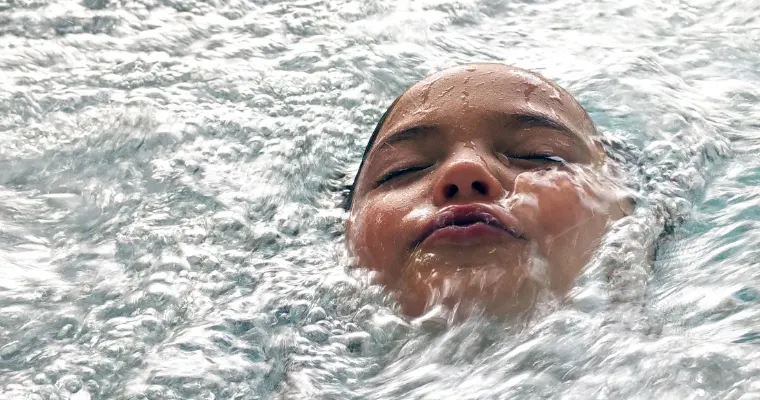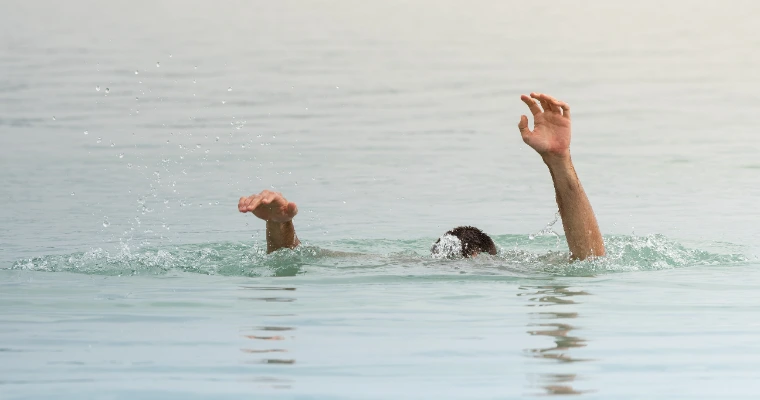The Psychological Effects of Almost Drowning - Overcoming the Deep Waters of Trauma
Updated on 25th March, 2023
The Psychological Effects of Almost Drowning
If you have ever experienced almost drowning, you may have noticed that the event can leave a lasting impact on your psyche. In fact, the psychological effects of almost drowning can be just as severe as the physical effects. In this article, we will explore these psychological effects and what you can do to cope with them. Firstly, it is important to understand that almost drowning can be a traumatic experience. This trauma can lead to a number of psychological effects, including post-traumatic stress disorder (PTSD), anxiety, and depression. The fear of drowning can also become overwhelming and may prevent individuals from participating in water-related activities, which can further impact their mental health.

The psychological effects of almost drowning can also manifest in physical symptoms. Individuals may experience panic attacks, hyperventilation, and increased heart rate when they are near water or in situations that remind them of their near-drowning experience. These physical symptoms can exacerbate the psychological effects and make it difficult for individuals to cope. Almost drowning can have a significant impact on an individual's mental health. The psychological effects can be severe and can manifest in physical symptoms, which can make it difficult to cope. Seeking professional help is essential for individuals who are experiencing these effects, and with the right treatment, it is possible to overcome the trauma and live a fulfilling life.
Long Term Effects of Near Drowning in Adults
Near drowning incidents can have significant long-term effects on an adult's physical and mental health. The effects can be severe and may require professional help to cope with. In this section, we will explore the long-term effects of near drowning in adults.
Physical effects: One of the most common long-term effects of near drowning in adults is respiratory problems. These problems can be caused by inhaling water during the near-drowning incident, which can lead to inflammation and scarring of the lungs. This can result in chronic respiratory problems, such as asthma and bronchitis, that can affect an individual's quality of life. In addition, near-drowning incidents can also cause neurological problems, including brain damage and seizures. This can result in long-term cognitive problems, including memory loss, difficulty with concentration, and a reduced ability to learn new skills.
Psychological effects: Near drowning incidents can also have significant psychological effects on adults. Post-traumatic stress disorder (PTSD) is a common psychological effect of near drowning incidents. Individuals may experience flashbacks, nightmares, and anxiety related to their near-drowning experience. These symptoms can be severe and may require professional help to cope with. The fear of water is another common psychological effect of near drowning incidents in adults. This fear can be overwhelming and may prevent individuals from participating in water-related activities, which can further impact their mental health and quality of life.
Physical effects, such as respiratory and neurological problems, can impact an individual's quality of life. Psychological effects, such as PTSD and the fear of water, can also be severe and may require therapy to overcome. It is important for individuals who have experienced a near-drowning incident to seek professional help and support to ensure they can manage and cope with these long-term effects.
Drowning Victims Usually Cannot Call for Help
Drowning is a leading cause of accidental death worldwide, and one of the reasons for this is that drowning victims usually cannot call for help. When an individual is drowning, they may be unable to call for help or even wave their arms to alert others to their distress. In this section, we will explore the reasons why drowning victims cannot call for help and what you can do to prevent drowning incidents. When an individual is drowning, they are struggling to breathe and may be unable to make any noise. In addition, the body's natural response to drowning is to close off the airways, making it impossible for the victim to call for help or breathe. This means that it can be difficult for bystanders to recognize that someone is drowning until it is too late.

Prevention: The best way to prevent drowning incidents is to practice water safety measures. This includes always supervising children near water, wearing life jackets while boating, and never swimming alone. It is also important to learn how to recognize the signs of drowning, such as a head tilted back with mouth open or eyes closed, and act quickly to assist the victim. In addition, learning CPR can be a lifesaving skill when dealing with drowning victims. CPR can help maintain the victim's oxygen supply until professional medical help arrives. Drowning victims usually cannot call for help, which can make it difficult for bystanders to recognize when someone is in distress. Practicing these measures are all important steps in preventing drowning incidents and potentially saving lives. It is important to always be aware of the dangers of drowning and take proactive steps to ensure your safety and the safety of those around you.
Vegetative State After Near Drowning
Drowning is a traumatic incident that can have severe long-term effects, including the risk of a vegetative state after near drowning. When an individual experiences a near drowning incident, they can suffer from significant brain damage, resulting in cognitive impairments, physical disabilities, and the potential for a vegetative state. In this section of the article, we will explore what a vegetative state is, its relationship with psychological effects, why it can occur after near drowning, and what can be done to prevent it.
Definition: A vegetative state after near drowning is a condition in which an individual is awake but has no awareness of their surroundings. They may open their eyes, move, and even breathe on their own, but they do not respond to external stimuli or have any conscious awareness of their surroundings. The psychological effects of being in a vegetative state can be traumatic for both the patient and their loved ones, as they may feel trapped and isolated in their own body.
Causes: The brain damage that occurs during a near drowning incident can cause significant long-term effects, including cognitive impairments and the potential for a vegetative state. When the brain is deprived of oxygen, it can lead to irreversible damage that affects various functions of the body, including the psychological state of the patient. A vegetative state after near drowning can cause depression, anxiety, and post-traumatic stress disorder (PTSD) in both the patient and their loved ones.

Treatment: While there is no cure for a vegetative state, individuals can receive supportive care to help manage their condition. This includes physical therapy to prevent muscle atrophy and maintain range of motion, as well as speech and occupational therapy to improve communication and daily living skills. In some cases, individuals may regain consciousness and progress to a minimally conscious state, but this is not guaranteed. Treatment for psychological effects, such as depression and PTSD, can also be beneficial for both the patient and their loved ones. A vegetative state after near drowning is a devastating outcome that can result from brain damage caused by lack of oxygen. By taking preventative measures, individuals can reduce their risk of experiencing a near drowning incident and the potential for a vegetative state. It is important to be aware of the dangers of drowning and take proactive steps to ensure your safety and the safety of those around you. If you or someone you know experiences a near drowning incident, seeking medical attention immediately can help reduce the risk of long-term effects and improve the chances of recovery from both physical and psychological effects, including a vegetative state.
The Psychological Impact of Near Drowning
One of the most common psychological effects of almost drowning is anxiety. The fear of drowning can create a lasting impact on a person's mental state, causing them to feel nervous and uneasy around water. The anxiety may manifest as a fear of swimming, fear of large bodies of water, or even a fear of taking a bath or shower. In severe cases, the anxiety may develop into a phobia, which can significantly impact the victim's quality of life.
Depression is another psychological effect that can result from almost drowning. The victim may feel overwhelmed by the experience, leading to feelings of sadness, hopelessness, and despair. They may also feel isolated and disconnected from others who do not understand what they have gone through. These feelings can persist long after the incident, causing significant mental health challenges.
It is crucial to seek professional help if you or someone you know is experiencing the psychological effects of almost drowning. Therapy, counseling, and support groups can provide a safe and supportive environment for victims to process their trauma and learn coping mechanisms to manage their mental health challenges. In conclusion, near drowning can have severe and long-lasting psychological effects on the victim, including anxiety, depression, and post-traumatic stress disorder. It is essential to seek professional help to manage these mental health challenges and ensure a healthy recovery from the traumatic incident.
Psychological Effects of Almost Drowning: Coping with Trauma and Anxiety
While the physical effects of near-drowning are well documented, the psychological impact is often overlooked. In this section, we will look at the psychological effects of almost drowning with references to case studies, and offer some coping mechanisms to manage the trauma and anxiety that can follow.
Case Studies: There have been several case studies conducted on the psychological effects of almost drowning. A study by A. F. Petcoff and A. W. O'Connell published in the American Journal of Psychiatry in 1962 found that individuals who experienced near-drowning accidents often reported anxiety, nightmares, and flashbacks. Another study by K. H. Lampe published in the Journal of Psychosomatic Research in 1970 found that survivors of near-drowning accidents were more likely to develop PTSD compared to those who had not experienced such an event. A more recent study by R. P. Suydam and J. P. Margetis published in the Journal of Nervous and Mental Disease in 1974 found that individuals who experienced near-drowning accidents often reported feelings of helplessness and a loss of control.

Coping Mechanisms:
Fortunately, there are several coping mechanisms that can help individuals manage the psychological effects of almost drowning. These include:
1. Seeking professional help: Talking to a mental health professional can provide a safe space to process trauma and learn coping mechanisms to manage mental health challenges.
2. Practicing relaxation techniques: Deep breathing, meditation, and yoga can help reduce anxiety and promote relaxation.
3. Getting back in the water: Gradually exposing oneself to water in a controlled environment, such as a swimming pool, can help overcome fears and build confidence.
4. Staying active: Exercise and physical activity can help reduce symptoms of depression and anxiety.
5. Practicing self-care: Eating a healthy diet, getting enough sleep, and engaging in activities that bring joy and relaxation can help improve overall mental health.
Conclusion: Almost drowning can have lasting psychological effects, but there are ways to manage the trauma and anxiety that can follow. Seeking professional help, practicing relaxation techniques, getting back in the water, staying active, and practicing self-care are all effective coping mechanisms. It's important to remember that everyone's experience is unique and there is no one-size-fits-all approach to managing the psychological effects of almost drowning. However, with the right support and coping mechanisms, individuals can recover and move forward from this traumatic event.